Growing food to tackle coronavirus and child malnutrition in Malawi
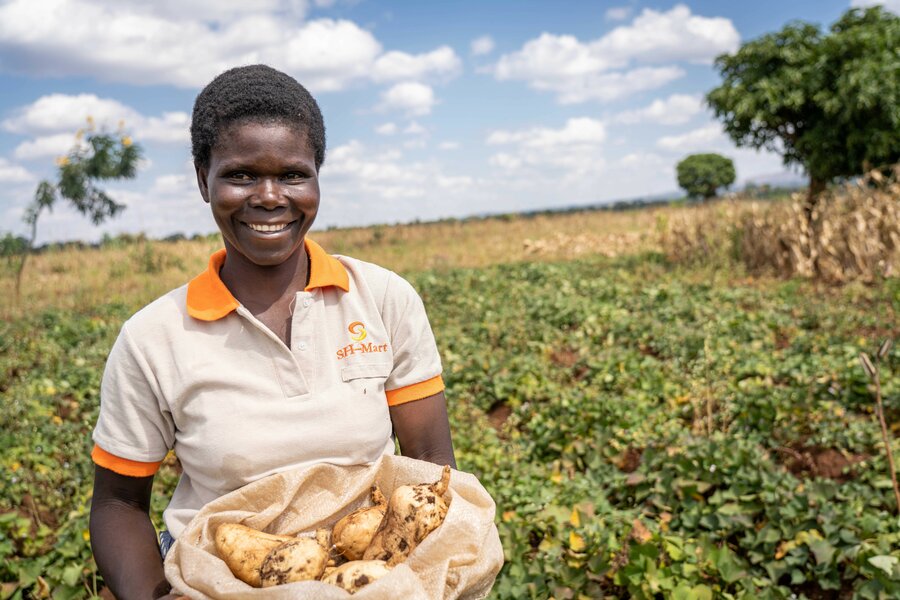
"While my son, Chrispine, was being treated for malnutrition at the hospital, I received orange-fleshed potato vines which I planted the same year," says Dorica Samson, from Nambirikira Village in Malawi's Dedza District. "Potato is very rich in vitamin A and I feed my five children and husband to stay healthy."
Aged 2 in 2017, Chrispine continued to feed solely on breast milk, refusing to eat anything. Eventually, he fell sick. He was admitted to Mtendere Community Hospital for supplementary feeding provided by the Government in collaboration with the World Food Programme (WFP) and the Government of Ireland. The nutritional support he received put him back on track.
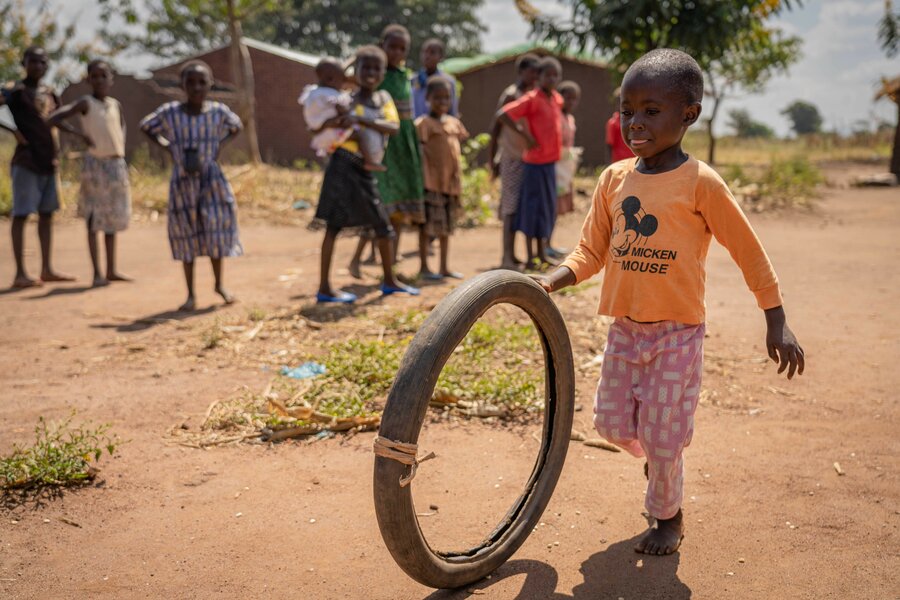
Of the 100 million people WFP aims to reach in 2020, 22 million are children and nursing mothers in need of lifesaving malnutrition prevention and treatment. Projections from WFP suggest COVID-19 could push a further 130 million into severe hunger, bringing the total to 265 million.
According to figures from Johns Hopkins University, published in The Lancet, 1.2 million children under-5 could die over the next six months if health care and food markets are disrupted.
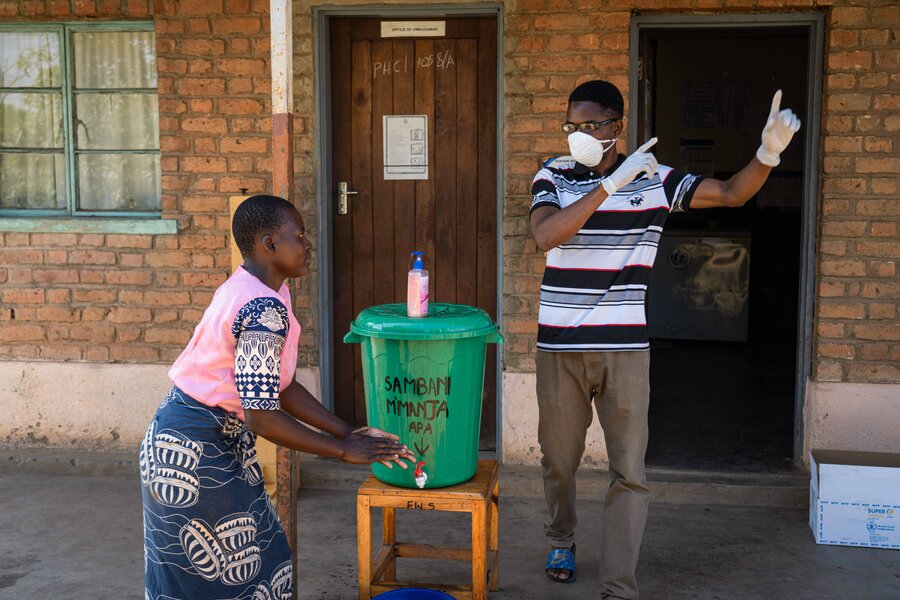
William Magombo, a health surveillance assistant at Mtendere Community Hospital, has seen many stories like Dorica's.
"We have been raising awareness with pregnant and breastfeeding women on nutrition and healthy diets," says William. "However, to sustain them on the path to recovery, we train them to grow and prepare locally available foods, such as the yellow-flesh sweet potato, beans, groundnuts and other."
Malawi faces high levels of stunting that results from poor childhood diets and infections — an estimated 56,000 under-5s suffer acute malnutrition. And only 8 percent of children under the age of 2 consume the minimum acceptable diet. While down almost 10 percent since 2010, stunting remains very high at 37.1 percent.
Childhood malnutrition in Malawi is perpetuated through the impacts of recurrent climate shocks. Without access to adequate food and nutrition, children under 5 are at high risk of acute malnutrition, which can result in irreversible setbacks to their development for the rest of their lives.
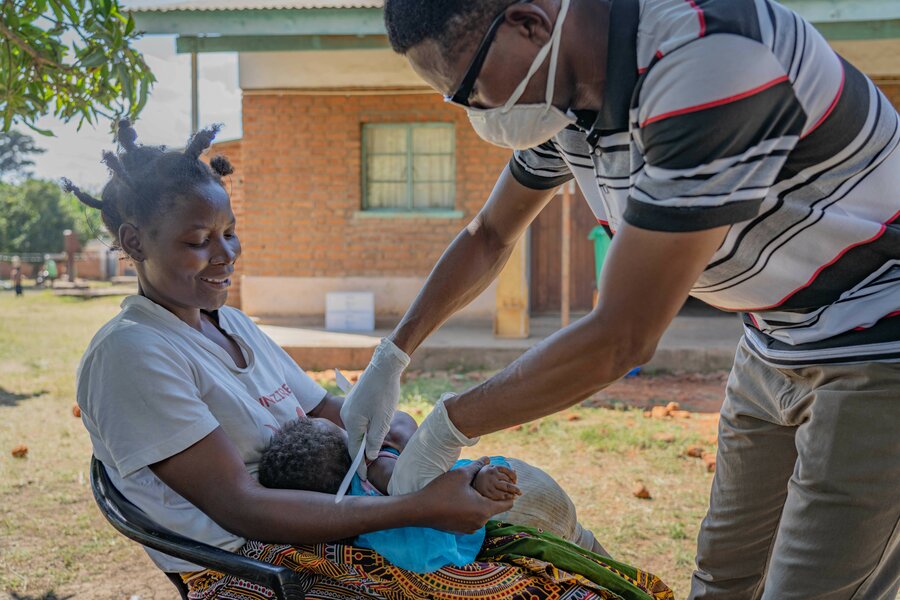
Usually, when children fall sick with malnutrition in Malawi, they are taken to a health centre to receive Super Cereal Plus, a nutrient-rich, high-energy dense porridge flour. But sometimes there are other underlying issues; children can fall sick again after showing signs of recovery.
While her son was being treated, Dorica was involved in a programme to learn how to grow and prepare nutritious food for her family through health and nutrition sessions conducted by health monitors — hence the orange-fleshed sweet potatoes she planted.
Potato complements foodstuffs such as maize, soya beans and groundnuts which she grows on her farm. From these, with the training she got at the hospital, Dorica and her family of six have a rich and nutritious diet.
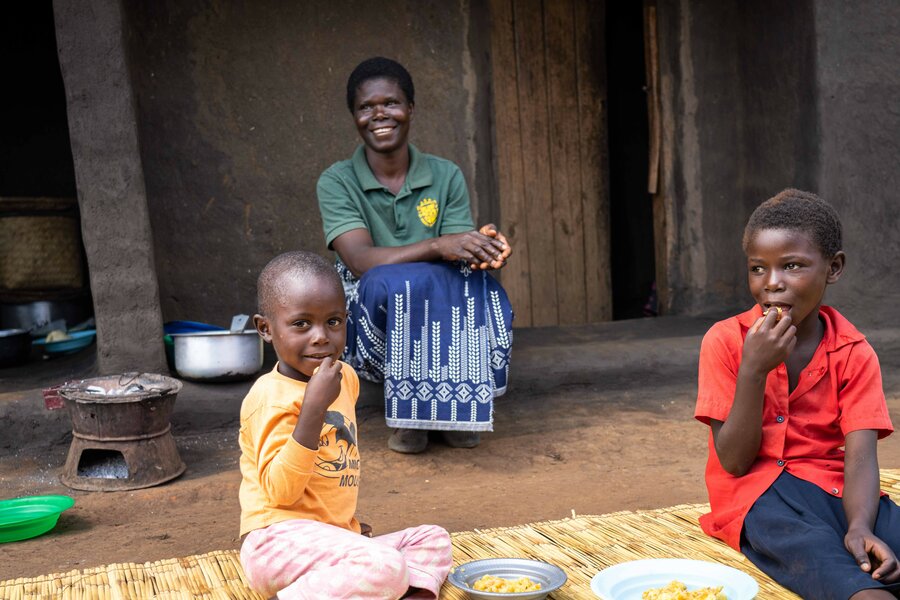
Dorica now has a six-month-old baby but does not need to go again to the hospital for nutrition support. In spite of restrictions on movement and gatherings, Dorica has all nutritional solutions for her family right at her doorstep.
"I make porridge and fritters from the potato and Chrispine likes it so much — it is delicious and full of nutrients", she says. "I feed the entire family and they love it," she says. "With this potato and other crops I grow, I have enough food and even with the little baby, I do not go to the hospital for nutrition support."

